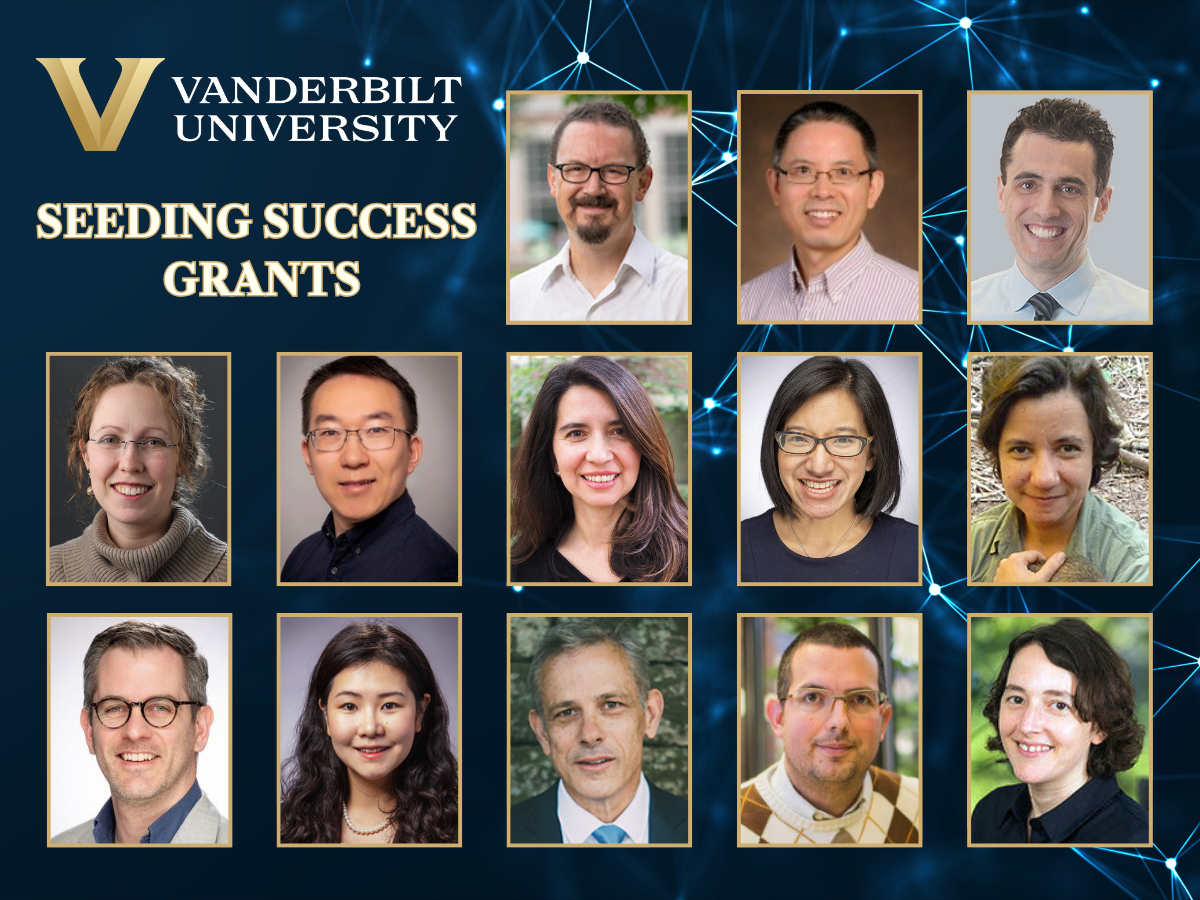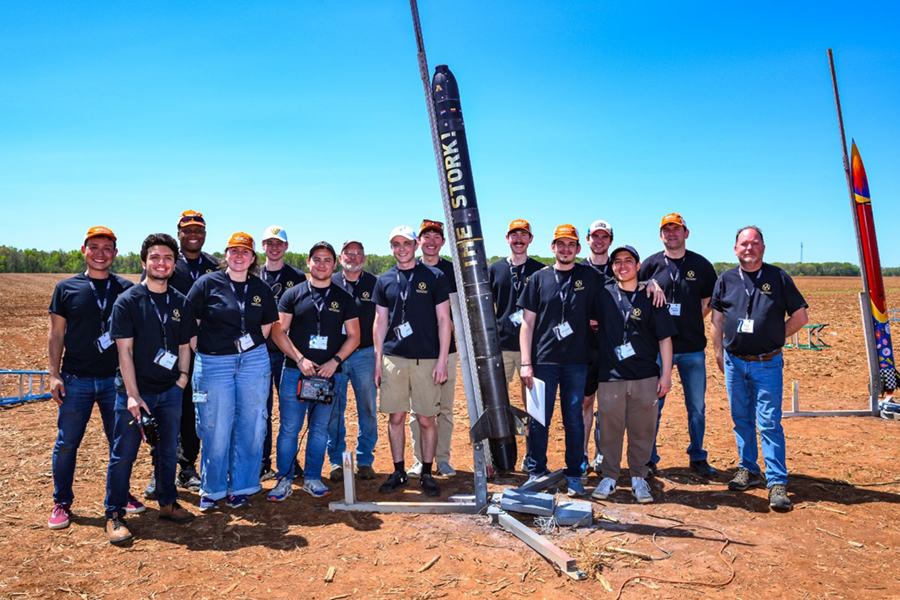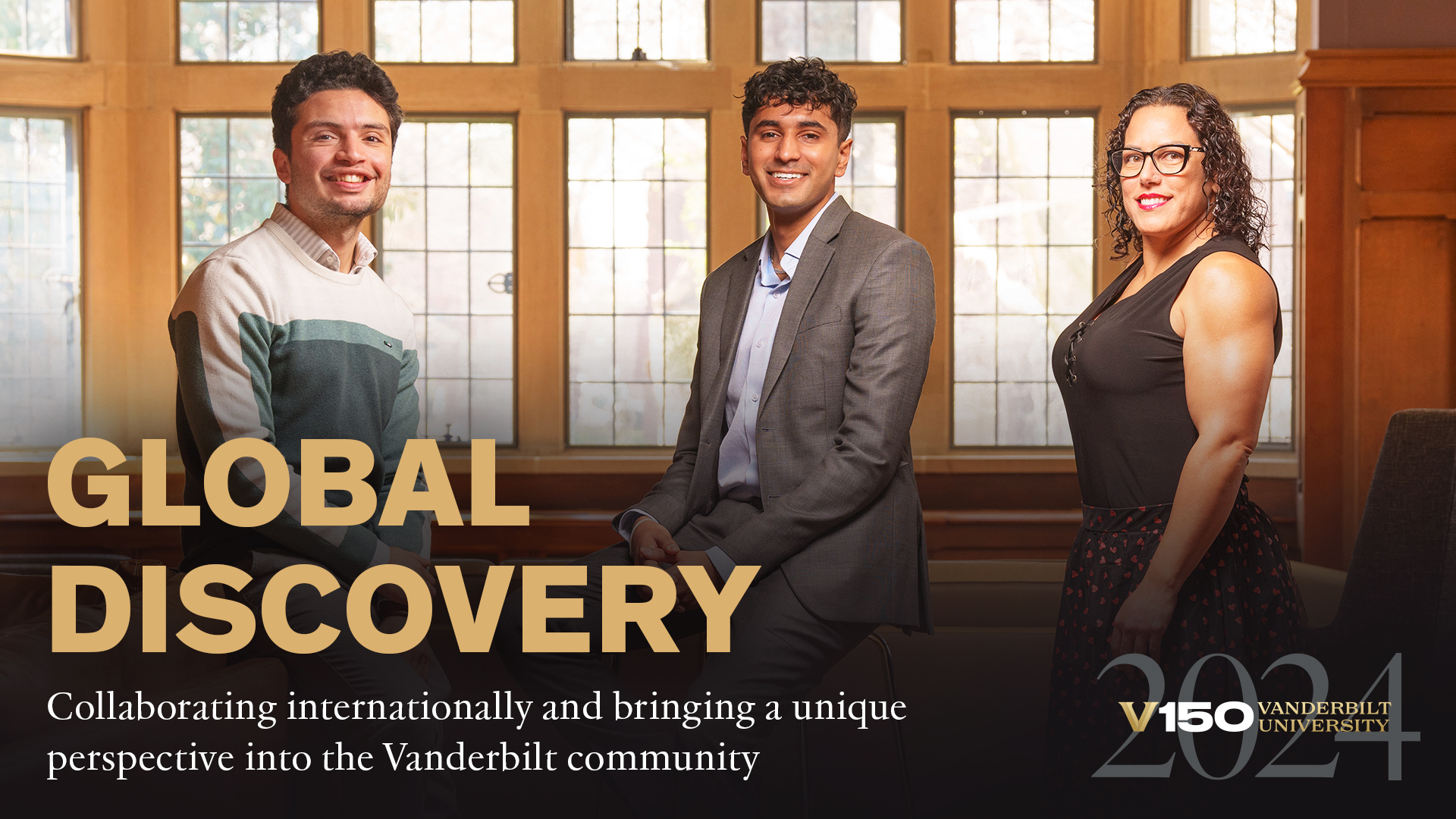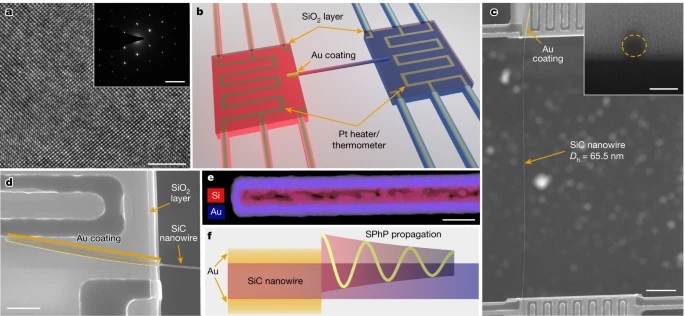Mechanical Engineering
-

Vanderbilt names spring 2024 Seeding Success Grant awards
Thirteen innovative projects across seven colleges and schools have been selected for the spring 2024 round of Seeding Success internal grants. The Office of the Vice Provost for Research and Innovation announced the recipient list on May 31. Read MoreJun 25, 2024
-

Vanderbilt rocket team to pursue drone success at 2024 NASA competition
Vanderbilt rocket team members are staying in the lab this summer to work on two designs of the drone that netted the team a second place award in the coveted AIAA Reusable Launch Vehicle Innovative Payload category at the 2024 NASA University Student Launch Initiative Division rocket competition in April. Read MoreJun 17, 2024
-

Robotic device restores wavelike muscular function involved in processes like digestion, aiding patients with compromised organs
A team of Vanderbilt researchers has developed a wirelessly activated device that mimics the wavelike muscular function in the esophagus and small intestine responsible for transporting food and viscous fluids for digestion. Read MoreJun 7, 2024
-

Vanderbilt researchers’ novel catheter-based technology to make endovascular procedures more efficient and safe
With hundreds of thousands of people in the United States having a stroke annually, Vanderbilt researchers are developing technology that could revolutionize the way blood clots are removed by allowing surgeons to complete the process more efficiently and safely. Read MoreMay 9, 2024
-

WATCH: Unique perspectives from around the globe enrich the Class of 2024
Meet some members of the Class of 2024 who are sharing their unique global experiences and identities, enriching the Vanderbilt community. Read MoreMay 3, 2024
-

Nanostructured flat lens uses machine learning to ‘see’ more clearly, while using less power
A front-end lens, or meta-imager (see below), created at Vanderbilt University can potentially replace traditional imaging optics in machine-vision applications, producing images at higher speed and using less power. The nanostructuring of lens material into a meta-imager filter reduces the typically thick optical lens and enables front-end processing that encodes information more efficiently. The imagers... Read MoreJan 4, 2024
-

Researchers’ breakthrough in thermal transport could enable novel cooling strategies
Vanderbilt mechanical engineering professors Deyu Li and Josh Caldwell are part of a team of researchers who have discovered a new heat dissipation channel using phonon polaritons that could have extensive implications for novel cooling technologies in devices like smart phones and other modern electronics. Read MoreNov 16, 2023
-

Researchers’ breakthrough in thermal transport could enable novel cooling strategies
Vanderbilt mechanical engineering professors Deyu Li and Josh Caldwell are part of a team of researchers who have discovered a new heat dissipation channel using phonon polaritons that could have extensive implications for novel cooling technologies in devices like smart phones and other modern electronics. The research was recently published in Nature Communications under the... Read MoreNov 10, 2023
-

VISE-affiliated researchers conduct phase 1 trial of novel magnetic endoscope for colonoscopies
The research team includes, left to right, Bruno Scaglioni, PhD; Keith Obstein MD, MPH; James Martin, PhD; Claire Landewee; Simone Calò, PhD; and Pietro Valdastri, PhD. (photo by Susan Urmy) by Jill Clendening A Vanderbilt Institute for Surgery and Engineering (VISE) research team is conducting the first phase 1 clinical trial of a magnetic, flexible... Read MoreOct 19, 2023
-

Vanderbilt researchers seeking to aid neurodiverse adults receive prestigious National Science Foundation CIVIC Stage 2 Award
Two Vanderbilt researchers are part of a team that earned a $1 million grant to develop AI-based training that will help neurodiverse people learn to drive—addressing a huge obstacle for that population. “The ability to drive will open up new opportunities for employment and a life of independence for many neurodiverse individuals,” said Nilanjan Sarkar,... Read MoreSep 22, 2023
-

Vanderbilt researchers seeking to aid neurodiverse adults receive prestigious National Science Foundation CIVIC Stage 2 Award
Two Vanderbilt researchers are part of a team that earned a $1 million grant to develop AI-based training that will help neurodiverse people learn to drive—addressing a huge obstacle for that population. “The ability to drive will open up new opportunities for employment and a life of independence for many neurodiverse individuals,” said Nilanjan Sarkar,... Read MoreSep 22, 2023
-

Vanderbilt initiated startup Zeno Power receives $30M to build the first commercially developed nuclear–powered satellite
Zeno Power, a startup initiated through the Wond’ry, Vanderbilt’s Innovation Center, has received a total of $30 million from the U.S. Department of Defense and private investors to develop and build a flight-ready radioisotope-powered satellite by 2025. It is expected to be the first launch of a commercially developed space nuclear system in history. Vanderbilt... Read MoreJun 20, 2023
-

Karl Zelik receives distinguished Goel Award for translational research in biomechanics
Karl Zelik, associate professor of mechanical and biomedical engineering and physical medicine and rehabilitation, is being recognized for his contributions to biomechanics with a Goel Award. The award recognizes accomplishments in translational biomechanics research, entrepreneurship and societal benefit. Read MoreMay 31, 2023
-

Karl Zelik receives distinguished Goel Award for translational research in biomechanics
Karl Zelik, associate professor of mechanical and biomedical engineering and physical medicine and rehabilitation, is being recognized for his contributions to the field of biomechanics with a prestigious Goel Award from the American Society of Biomechanics. The award recognizes outstanding accomplishments in translational biomechanics research, entrepreneurship, and societal benefit. Zelik co-directs the Center for Rehabilitation... Read MoreMay 31, 2023
-

Discovery Vanderbilt invests in two engineering faculty-initiated startups: HeroWear and Virtuoso
A university leadership committee has approved Discovery Vanderbilt investments into three faculty-initiated startups—HeroWear, IDBiologics and Virtuoso Surgical Inc.—as part of its mission from the offices of the chancellor and provost to boost innovation across the university. “These three initial investments will fuel discovery and accelerate the translation of our research into real-world benefits,” Chancellor Daniel... Read MoreMay 29, 2023
-

Discovery Vanderbilt invests in two engineering faculty-initiated startups: HeroWear and Virtuoso
A university leadership committee has approved Discovery Vanderbilt investments into three faculty-initiated startups—HeroWear, IDBiologics and Virtuoso Surgical Inc.—as part of its mission from the offices of the chancellor and provost to boost innovation across the university. “These three initial investments will fuel discovery and accelerate the translation of our research into real-world benefits,” Chancellor Daniel... Read MoreMay 29, 2023
-

Little Sphere, Big Power: Students work to build miniature fusion reactor
By Amy Wolf It all started late one night in a first-year residence hall. A group of students were brainstorming ideas for an innovative project to collaborate on, and amid all the ambitious suggestions getting tossed around, one engineering major’s idea stood out: What if they built a miniature nuclear fusion reactor? In typical Vanderbilt... Read MoreMay 19, 2023
-

Little Sphere, Big Power: Students work to build miniature fusion reactor
By Amy Wolf It all started late one night in a first-year residence hall. A group of students were brainstorming ideas for an innovative project to collaborate on, and amid all the ambitious suggestions getting tossed around, one engineering major’s idea stood out: What if they built a miniature nuclear fusion reactor? In typical Vanderbilt... Read MoreMay 19, 2023
-

Caldwell collaboration wins prestigious Office of Naval Research MURI grant
Joshua Caldwell (Vanderbilt University) Josh Caldwell, director of the Interdisciplinary Material Sciences program and professor of mechanical engineering, has been awarded a grant from the Office of Naval Research’s Multidisciplinary University Research Initiative. The five-year grant, which provides up to $1.5 million in funding annually, will be shared among Vanderbilt University, the University of Iowa,... Read MoreApr 20, 2023
-

Caldwell collaboration wins prestigious Office of Naval Research MURI grant
Joshua Caldwell (Vanderbilt University) Josh Caldwell, director of the Interdisciplinary Material Sciences program and professor of mechanical engineering, has been awarded a grant from the Office of Naval Research’s Multidisciplinary University Research Initiative. The five-year grant, which provides up to $1.5 million in funding annually, will be shared among Vanderbilt University, the University of Iowa,... Read MoreApr 20, 2023